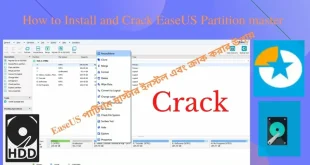Tax payments can seem daunting, but they can be made simpler with the correct information and guidance. One crucial aspect of tax management for businesses and individuals is paying taxes in advance. This article will break down the process into easy-to-follow steps, focusing on the Advance Tax Challan and GST online payment.
Understanding Advance Tax
Advance tax is a progressive taxation system whereby taxpayers proactively pay their taxes in advance and regular instalments throughout the fiscal year rather than in a single lump sum at year-end or during their income tax return filing. This method, mandated by the Income-tax Act of 1961, applies to individuals, self-employed professionals, and businesses, requiring them to estimate their annual income and corresponding tax liability. By adhering to specified due dates, taxpayers contribute towards their taxes incrementally, ensuring a smoother revenue collection process for the government. This approach distributes the tax burden evenly across the year and mitigates the risk of taxpayers facing financial strain from a substantial tax obligation at the year’s close. Thus, advance tax serves as a vital mechanism for maintaining fiscal discipline and facilitating efficient tax administration.
Step 1: Determining Tax Liability
Before making any payments, it’s essential to calculate your estimated tax liability for the year. This involves considering various sources of income, deductions, and exemptions. By evaluating your income accurately, you can determine the amount of Advance Tax due.
Step 2: Generating Advance Tax Challan
Once you have calculated your tax liability, the next step is to generate an Advance Tax Challan. This can be done online through the income tax department’s website or at authorised bank branches. Ensure you provide accurate details such as PAN, assessment year, and type of tax payment.
Step 3: Filling out Challan Details
When filling out the Challan, pay close attention to the information required. Include your PAN, assessment year, payment type (Advance Tax), and payable amount. Double-check the details to avoid any errors that could lead to complications later on.
Step 4: Selecting Payment Mode
You can choose from various payment modes, including online banking, credit/debit cards, or visiting the bank branch. The process may differ slightly for GST online payment, but the principles remain the same. Opt for the mode that is most convenient and secure for you.
Step 5: Making the Payment
Once you’ve filled out the Challan and selected your payment mode, proceed to make the payment. Follow the instructions the payment gateway or bank provides to complete the transaction securely. Keep records of the transaction for future reference.
Step 6: Acknowledgment and Confirmation
After the payment is made, you will receive an acknowledgement of receipt confirming the transaction. This serves as proof of payment and should be retained for your records. In case of any discrepancies, you can refer to this acknowledgement for resolution.
Benefits of Paying Advance Tax
Paying advance tax comes with several advantages that can benefit taxpayers in various ways:
Avoidance of Penalties
Advance tax payment reduces the risk of taxpayers facing penalties due to default on tax payments. By paying taxes in instalments throughout the financial year, individuals and businesses fulfil their tax obligations on time, minimising the chances of incurring interest charges or fines.
Better Financial Management
One significant benefit of advance tax payment is that it helps manage finances more effectively. By spreading out tax payments over multiple instalments, taxpayers can avoid the burden of having to pay a large sum all at once. This relieves them from the stress of last-minute tax payments and allows for better budgeting and expense planning.
Continuous Revenue Stream for the Government
Advance tax payments provide a steady and continuous flow of income to the government throughout the year. This regular influx of revenue enables the government to fund various public services, infrastructure projects, and welfare programs without relying solely on end-of-year tax collections.
Consequences of Non-payment/Short-payment/Delay in Payment of Advance Tax
Interest Charges
Failure to make advance tax payments accurately and on time may result in interest being charged under sections 234B and 234C of the Income Tax Act, 1961. Taxpayers not fulfilling their advance tax obligations are liable to pay interest on the shortfall amount or delayed payments.
Tax Notice from Income-tax Department
Non-payment or underestimation of advance tax obligations may lead to receiving notices from the Income-tax Department. Taxpayers who fail to pay advance tax or provide false estimates may face penalties and additional interest charges. It’s essential to adhere to advance tax payment deadlines and accurately estimate tax liabilities to avoid such consequences.
In short, paying advance tax offers significant benefits such as penalty avoidance, improved financial management, and sustained revenue for the government. However, non-compliance with advance tax obligations can lead to interest charges, penalties, and tax notices from the authorities. Therefore, taxpayers must diligently fulfil their advance tax requirements to ensure smooth tax compliance and financial stability.
Conclusion
Advance tax payment is integral to tax compliance, ensuring timely contributions towards government revenue. By following the simple steps outlined in this guide and utilising tools like the Advance Tax Challan and GST online payment portal, taxpayers can fulfil their obligations efficiently. Remember to stay informed about any updates or changes in tax regulations to avoid penalties or fines. Taking proactive steps towards tax management can alleviate stress and promote financial health in the long run.
 Daily Blogger News Stay updated with the latest trends and insights. Your reliable source for daily updates and information.
Daily Blogger News Stay updated with the latest trends and insights. Your reliable source for daily updates and information.







